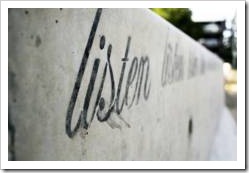 In our modern life, one of the things we have the least of is time. A common expression I hear from people every day is “I’m very busy” and even “No time. Too busy”. We go to work, we work under pressure all day, we come back, we hurry our meals, we resent having to drive our kids to their various activities, we sleep less than we should, we have less quality time than we want to have and we finish every week completely exhausted from trying to do more than we can, only to start another week that feels exactly the same, if not worse.
In our modern life, one of the things we have the least of is time. A common expression I hear from people every day is “I’m very busy” and even “No time. Too busy”. We go to work, we work under pressure all day, we come back, we hurry our meals, we resent having to drive our kids to their various activities, we sleep less than we should, we have less quality time than we want to have and we finish every week completely exhausted from trying to do more than we can, only to start another week that feels exactly the same, if not worse.
But maybe that is only what we think. Maybe it is this tendency to rush into and out of things as quickly as we can that makes us waste more time than we would by relaxing and “taking our time”.
You can observe a lot just by watching
– Yogi Berra
One of the things that seem to be happening to me a lot is being stopped short by people in conversation. I start to say something and another person cuts in with a response before I have finished presenting my idea.
This could just make for a quick and snappy conversation, if the responses were actually relevant for what I was going to say. You see, often, the beginning of an idea can develop in many directions and assuming we “know where this is going already” may not be correct.
 As a kid, I heard a joke about Person A asking Person B, “In a word, how are you?” “Good”, says Person B. “And in two words?” asks Person A. “Not good”, says Person B…
As a kid, I heard a joke about Person A asking Person B, “In a word, how are you?” “Good”, says Person B. “And in two words?” asks Person A. “Not good”, says Person B…
The same happens in real life.
About a month ago, I went to my dentist and complained about pain in one of my teeth. As I was talking, he said, “Let’s have a look” and shoved his instruments into my mouth. Using his fancy camera device, he showed me some cracks in one of my teeth and proceeded to describe the way to treat it. His proposed treatment involved a significant expense, so I decided to shop around.
I went to a dentist friend in another town, who first listened to me carefully, asked me some clarifying questions and then performed a test to confirm the source of my pain. As it turned out, the problem was with another tooth altogether.
Had the first dentist spent the time to listen, clarify and identify the problem, he would have gotten the business and I would have saved a few days of pain and a lot of travel time.
As if this was not enough, my dentist friend made a comment about my strong bite and worn out teeth. Much like many before him, he started suggesting that I wear a guard at night. Much like the other times, I told him I mostly grind my teeth during the day and I think it is related to how my teeth are positioned. However, whereas all those other dentists had told me their way had been the only one, for the first time in my life, this dentist stopped, took a closer look and said, “Hmmm, I see what you’re saying! I may be able to help you with this”.
 In many family situations, things are much the same. After years of living together, we get the feeling we can complete each other’s sentences. Actually, this thought causes us to interrupt one another and to stop truly listening. Although the people around us change over time, by holding on to the belief we already know what they are about to say, we are freezing their old self in our minds and interfering with their change.
In many family situations, things are much the same. After years of living together, we get the feeling we can complete each other’s sentences. Actually, this thought causes us to interrupt one another and to stop truly listening. Although the people around us change over time, by holding on to the belief we already know what they are about to say, we are freezing their old self in our minds and interfering with their change.
Say one of your kids got into a particular difficulty at school daily and you have heard the same story before, “Bonnie said she wasn’t my friend”. At first, you calmed the little person and explained about playing with other kids instead. Then, as soon as the story started, you start to cut it short with “Remember we talked about this? Just play with other kids”.
One day, a change happens. The little one overcomes the situation and tries to tell you about it at home. The beginning sounds the same, “Bonnie said she wasn’t my friend”, so you put on your I’ve-heard-this-a-million-times-by-now-so-will-you-get-over-it-already face and say, “Remember we talked about this? Just play with other kids”.
 You have just blown the opportunity to share in your child’s victory and encourage her personal development and instead criticized her. She looks down and says quietly, “But I DID go to play with the other kids. That’s what I wanted to tell you”.
You have just blown the opportunity to share in your child’s victory and encourage her personal development and instead criticized her. She looks down and says quietly, “But I DID go to play with the other kids. That’s what I wanted to tell you”.
I hate to admit this, but my daughter Eden is often a lot more resourceful than I give her credit for. When she describes her day, she lays it out in chronological order, so I never know what comes next, and she pours all of her emotions into the story, which creates a bit of “parental” pressure in me (“Somebody wasn’t nice to my baby. I’ve got to help her”).
So I butt in with other ways to look at things and possible solutions (“Aren’t I clever?”). In return, I always get the same reaction, “Dad, I’m telling you about my day. I didn’t ask for your advice. I’ve already fixed it. Just listen”. Ouch!
“Serves you right”, you say. Fair enough.
What you have to realize, though, is that the problem does not stop there. You see, as much as Eden wants to be heard and fights for her right to speak, when it comes time for me to tell about my day, she takes my place in the conversation and butts in all the time. This tendency to rush is contagious. It is transmitted through behavior modeling from generation to generation.
Are you still paying attention or do already know what I am going to say next?
Just checking.
Our mind is wonderful thing because of this very ability of jumping to conclusions. In many cases, it saves us lots of time. We could not possibly decide to buy anything, not even the simplest thing, if our mind could not filter out unimportant things, like the precise composition of the plastic casing, when choosing a computer monitor. The monitor is supposed to show us things clearly. Who cares about the plastic bits.
 But sometimes, we get too good at it and filter out too much, to the point where important stuff is blocked and never becomes part of our mental picture.
But sometimes, we get too good at it and filter out too much, to the point where important stuff is blocked and never becomes part of our mental picture.
Specifically, we do this to protect our sense of identity and our beliefs, even the ones that hurt us over and over again, like “I’m no good”. I have spent countless hours trying to convey simple suggestions against a barrage of objections, only to realize that when I suggested something, the other person was hearing, “He’s saying I’m no good and I need to change something to make him happy”.
How to be a better listener
This advice is simple and effective. It will help you at work, at home and with your friends. It will improve all of your relationships and make your life happier. Oh, and often, it will save you time.
- As often as you remember, take a few deep breaths. A deep breath involves exhaling (letting out) all the air from your lungs down to your stomach and then inhaling as much air as you can. After exhaling, stop breathing for as long as you can without making an effort and then inhale.
Do it now.
Can you feel the pressure gone?  Whenever you feel “I have no time for this” pressure in a conversation, take a deep breath and listen for just a little bit longer.
Whenever you feel “I have no time for this” pressure in a conversation, take a deep breath and listen for just a little bit longer.- Whenever you feel “I’m no good” pressure in a conversation, take a deep breath, listen for as long as you can and then ask, “What do you mean?”
- When you strongly believe the conversation is straying, take a deep breath and calmly ask, “How is this related to <the topic>?”
- When you have something burning on the stove and you really cannot spend the time to listen, smile and say, “I’d like to listen to this, but I can’t right now. Let’s talk in the evening/in an hour/etc” (sorry, no time for deep breaths on this one).
- When you just cannot wait to know the end, take a deep breath, smile and say, “Can you please tell me where this is going, so that I can listen?”
- When it seems like you have heard it all before, (you guess it) breathe deeply, smile and ask, “Is this any different to yesterday/last week/etc?”
- When it is important for you to get it right, ask the other person clarifying questions – “What do you mean?” or “Are you saying that…”
You get it, right? Get yourself into “listening mode” and keep yourself there by noticing your own pressures and applying generous doses of deep (not heavy, just deep) breathing, smiles and questions that will make it easier for you to listen.
Any more listening ideas? Happy to read them in your comments, so please share.
Happy listening,
Gal
 Whenever you feel “I have no time for this” pressure in a conversation, take a deep breath and listen for just a little bit longer.
Whenever you feel “I have no time for this” pressure in a conversation, take a deep breath and listen for just a little bit longer.










